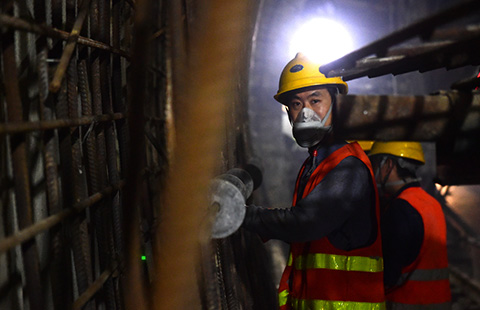China's manufacturing industry still to grow
BOSTON - China's manufacturing industry faces multiple challenges to maintain its momentum after two decades of rapid development, but experts gathering at Harvard University also see opportunities.
"Issues including rising labor cost and land prices, low added-value, and weak demand from other countries showed that China's manufacturing is at a phase where it has to be upgraded," Shanghai Development Research Fund vice chairman Qiao Yide told the 16th annual Harvard China Forum.
Experts agree the manufacturing industry needs to promote innovation and brand management and cultivate entrepreneurship, and they are optimistic it will find ways to achieve sustainable growth.
Although some foreign companies were transferring their factories from China to other, lower-cost countries in Southeast Asia, especially low added-value industries, some technology-reliant industries actually chose to stay in China, said Edward Tse, chairman of Booz & Co, a leading global consultancy firm.
He said the reason was China's manufacturing had developed a clustering effect, and manufacturing was never about one or two factories. Instead, it was a whole system, so the clustering effect would be a major advantage for the industry.
Moreover, Qiao said the recent withdrawal from china of manufacturing operations by some US companies was unlikely to happen on a mass scale.
First, China had built up a rich pool of human resources during the past 20 years; second, China's infrastructure was well established, including logistics and the Internet; and third, higher labor costs meant higher income, so the market had also expanded, he said.
Japan and South Korea both went through the stages of processing trade, simple equipment manufacturing and then creating their own brands. "I believe China's manufacturing can learn from them and achieve success," he said.
Meanwhile, experts suggested the government should allow the market mechanism to play its role in industrial upgrading.
Qiao said the policymakers should keep a good balance between the government and enterprises, suggesting the government should prudently implement policies related to the industry and leave certain functions to the market.
More importantly, the government needs to improve "soft infrastructure", including perfecting the legal and education systems.
In terms of innovation, Qiao said the government could channel funds into the core technology development required by a group of companies, while Tse said it should tighten regulations on intellectual property protection to promote innovation.























